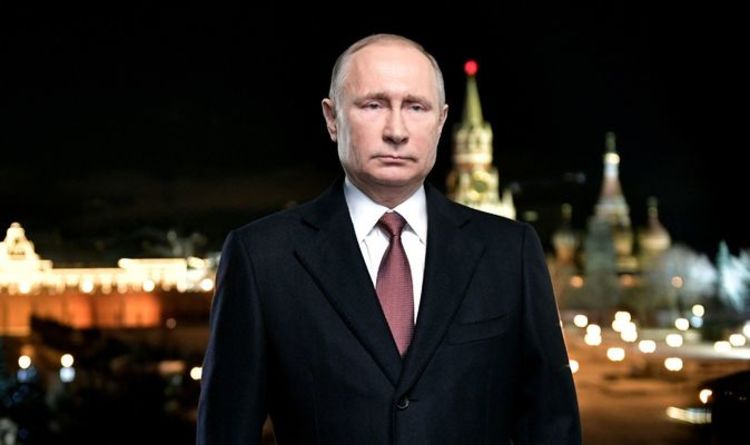Putin is bluffing! Troop build-up is posturing and he has no plans for ‘all-out’ invasion
Russia: Putin ‘playing a game of chess’ says expert
We use your sign-up to provide content in ways you’ve consented to and to improve our understanding of you. This may include adverts from us and 3rd parties based on our understanding. You can unsubscribe at any time. More info
A build-up of Russian troops on the border with Ukraine has deeply worried countries in the West, with Joe Biden warning President Putin of “sanctions like he’s never seen” should Russia invade Ukraine. Putin has demanded guarantees for the de-escalation of tensions around Ukraine, including that Ukraine is never admitted as a member of NATO – a key sticking point in negotiations that failed to produce conclusive results this week.
Michael Carpenter, US ambassador to the Organization for Security and Cooperation in Europe, called the situation “a crisis in European security”.
He added: “We’re not going to entertain restrictions on the right of nations to choose their own alliances; we’re not going to entertain privileging the security requirements of one state over another.
“The truth be told, there’s only one state in the OSCE that has invaded two of its neighbours and that stations forces on the territory of other states against their will, and that’s Russia.”
He continued: “The drumbeat of war is sounding loud and the rhetoric has gotten rather shrill.


“There are close to 100,000 troops on the Russian side of its border with Ukraine.
“Their presence and the live-fire measures being carried out are raising many questions about Moscow’s intentions.”
Despite the alarm of Brussels, The White House and Downing Street on the possibility of a military attack in Ukraine, Dr Rasmus Nilsson, lecturer in Slavonic and East European Studies at University College London, told Express.co.uk that the military strength of Russian troops is there, but perhaps the willingness to put them to use is not.
He said: “Russia retains sufficient troops near Ukraine to make trouble there, should the Russian regime wish to do so.


“However, an all-out, bloody war with Ukraine was never in Russia’s interest – not least given the substantial interpersonal links between Russians and Ukrainians in both of these countries.”
Dr Nilsson described how a Russian invasion of Ukraine could open up a diplomatic can of worms for the Russian president, who is still engaging in talks with the US and other Western countries over the fate of Ukraine.
Without ruling out the possibility, Dr Nilsson said: “A full-scale Russian invasion of Ukraine would expose Russia to international condemnation and sanctions, as well as domestic turmoil.
“That, combined with the risk of Russian-Kazakh tension to the south, would not be helpful for the Russian regime.”
DON’T MISS:
Should Brexit boss Liz Truss take over from Boris as PM? [POLL]
Five European nations most at risk from rising ocean [MAP]
‘Andrew on his own’ as Queen ‘draws strongest line’ [INSIGHT]

Dr Nilsson noted that, despite this, “Russia does retain the option of limited attacks in Ukraine.”
However, on Friday the US alleged that Russia had put agents in Ukraine to carry out a “false flag” mission that could be used as a pretext for a Russian invasion in a worrying escalation of tensions.
This follows a similar claim by the Ukrainian government based in Kyiv.
A Washington official said: “Russia is laying the groundwork to have the option of fabricating a pretext for invasion, including through sabotage activities and information operations, by accusing Ukraine of preparing an imminent attack against Russian forces in eastern Ukraine.”
They continued: “We have information that indicates Russia has already prepositioned a group of operatives to conduct a false-flag operation in eastern Ukraine.
“Russian influence actors already starting to fabricate Ukrainian provocations in state and social media.”
The official added – worryingly for the US and UK – that “the Russian military plans to begin these activities several weeks before a military invasion, which could begin between mid-January and mid-February” despite the Russian attendance at negotiating tables.
Source: Read Full Article

